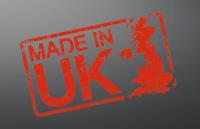 Add My Company
Add My Company
Sign In
Is manufacturing coming home?
08-05-2019

Unpacking the myths of cheap Chinese manufacturing.
Pick up five items in Poundland and you’ll likely notice that some, if not all, have the infamous ‘Made in China’ stamp. China has made a name for itself as mass producers of low-end products at low production costs. Despite being one of the world’s manufacturing giants, China’s manufacturing industry had a rough start this year. Historically speaking, China’s inexpensive wages and large workforce positioned China as the ideal location for foreign countries to inexpensively set up shop. However, a number of recent shifts have taken place that are threatening to remove or at the very least reduce, China’s competitive advantage. With these changes in mind, is China still the best option for low production costs? We did a little research to find out.
Increased Production Costs: As we mentioned previously, low manufacturing costs are the main reason companies choose to outsource to China. However, the costs associated with manufacturing goods in China and shipping them elsewhere (such as the UK or U.S.A) have increased. Workers are demanding fairer wages and have the leverage of moving to another manufacturing plant if their demands are not met. On top of higher wages, shipping is more expensive than it’s ever been due to high oil prices, taxes and customs fees. These monetary shifts have significantly reduced the cost benefits associated with outsourcing to China and may present domestic manufacturing as a more viable (and convenient) option.
Political & Economic Instability: There is always a bit of risk involved when outsourcing to another country as profit margins are largely dependent upon trade deals and tariffs, which are entirely out of your control. As countries increasingly use trade barriers as political capital, unstable political relationships can dramatically impact the financial wellbeing of companies who trade with other countries or operate on foreign soil. Just last month, China blocked canola oil shipments from one of the largest grain producers in Canada. Although they claimed to have found ‘hazardous’ materials inside the product, the timing coincided with a major diplomatic dispute that erupted between the two countries following the arrest of a Chinese Huawei senior executive in Canada.
‘Made in China’ Stigma: Justified or not, goods manufactured in China have a certain stigma attached to them. Consumers often associate the ‘Made in China’ stamp with cheaply or unethically made products. In contrast, goods that are ‘Made in UK’ are associated with higher standards and the pride that comes with supporting the local economy. While some consumers will always purchase based on price, the modern socially-conscious shopper is increasingly choosing quality and locality over their wallet in hopes of stimulating local economies.
As with most things, there is no one-size-fits-all answer when it comes to low-cost production. What works for one company may not work for another. Yet one thing is for certain, in today’s everchanging global marketplace, there are definite risks attached to operating on foreign soil. While the initial price tag of production may appear smaller overseas, the addition of shipping, customs, taxes, and political instability may just tip the scale in favour of ‘Made in the UK’.
For more information on Is manufacturing coming home? talk to KTR U.K. Ltd
Enquire Now
List your company on FindTheNeedle.

